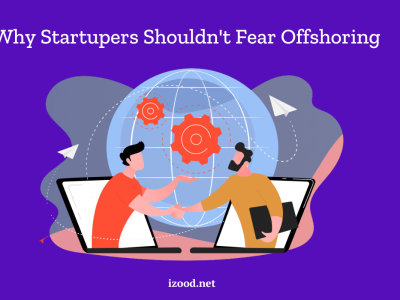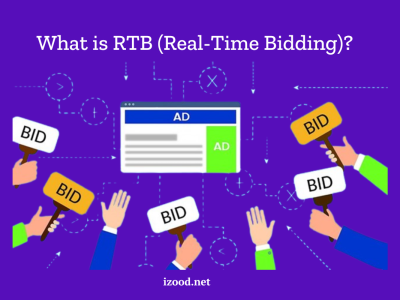AI is changing the game for retailers. No longer do businesses have to rely on human workers to provide customer service and carry out tasks. Instead, AI can be used to automate these processes, providing a more helpful and efficient experience for customers.
B&Q, a large home improvement chain in the UK, is using AI to power its customer service. This has led to shorter wait times and more accurate responses from employees. As AI continues to evolve, we can expect even more amazing things from businesses like B&Q that are willing to embrace it.
When it comes to home improvement, B&Q is a go-to source for products and advice. What many people may not know, however, is that the company is using AI to make the shopping experience even more helpful.
From providing personalized suggestions to tracking customer preferences, AI is helping B&Q create a more tailored shopping experience for everyone who visits its stores.
Everything You Need To Know: How AI Is Powering A More Helpful To B&Q Company
B&Q, a UK-based company, is using artificial intelligence (AI) to power a more helpful customer experience. This includes providing recommendations on products and helping customers through the checkout process. AI is also being used to improve the accuracy of inventory predictions and manage product recalls.
The company’s e-commerce platform has attracted more than 20 million users since its launch in 2014, and B&Q is said to have the largest online product database of any home improvement retailer.
The use of artificial intelligence is becoming increasingly popular, not only in retail but also across other industries. One reason for this is that AI can help companies provide a better customer experience by offering recommendations on products and helping customers through the checkout process. For example, B&Q, a UK-based home improvement retailer, uses AI to power its e-commerce platform.
This helps customers find the products they need based on their specifications as well as make recommendations based on their browsing history. Additionally, when customers are ready to check out, an AI chatbot helps them through the process step by step.
Another benefit of using AI in retail is that it can help companies better predict product inventory levels and prevent costly stockouts. For example, if a retailer notices that a particular product always sells out on Black Friday but never sells out at any other time during the year, they can use this knowledge to accurately predict when additional stock should be ordered or restocked.
Search engines powered by artificial intelligence
There’s no doubt that artificial intelligence is changing the way we live our lives. But what you may not know is that it’s also changing the way we search the internet. In this blog post, we will discuss how AI-powered search engines are changing the online landscape and some of the benefits they offer users.
We all know that search engines are constantly changing and evolving. But what you may not know is that they’re being powered by artificial intelligence more and more. This means that search engines are getting smarter and more efficient at finding the information we’re looking for.
One of the biggest benefits of using an AI-powered search engine is that it can help you find things you never would have thought to search for. For example, let’s say you’re searching for a new pair of shoes.
You might enter “shoes” into a traditional search engine and get a bunch of results for different types of shoes. But with an AI-powered search engine, you might also get results for stores that sell shoes, reviews of different shoes, and even advice on how to choose the right shoes.
Another benefit of using an AI-powered search engine is that it can help you refine your searches in order to get more accurate results. For example, if you’re searching for information about a specific type of shoe, you can use tools like filters and advanced search options to narrow down your results and find exactly what you need.
Moreover, AI can also be used to manage product recalls more effectively. This involves analyzing customer reviews and social media posts for complaints about poor-quality products as well as monitoring sales trends for specific product lines to determine whether there is a reason for concern.
Overall, many retailers are turning to AI because it has been proven to boost efficiency and increase sales. As technology becomes more advanced, we can expect to see even more exciting applications of AI in the retail industry and beyond.
The elements of AI-powered search engines
There’s no question that a modern search engine is a powerful tool. With the advent of AI-powered engines, it has become even more useful. But what goes into making these engines so effective?
In this section, we will explore the different elements that make up an AI-powered search engine and how they work together to provide users with accurate and relevant results.
1. The Knowledge Graph
The first element that helps make search engines more powerful is the knowledge graph – a graph database of public information. This is where all of the past actions, relationships, locations, and much more are stored. With this information readily available to the engine, it can provide users with accurate and relevant results.
For example, when we search for ‘Boston’, the knowledge graph will return information about Boston including its location, famous landmarks, and other important details like weather and population.
Alongside this information, the engine may also show popular attractions in Boston or news about Boston based on what other users have searched for in that area.
2. Relevancy Algorithms
Another key element of an AI-powered search engine is the relevancy algorithms. These algorithms take into account a wide range of factors in order to return results that are contextually relevant to the query.
The first thing that these algorithms look at is how often other users have clicked on a particular result and whether they found it useful or not. This will help identify which results are most useful, thereby allowing the engine to rank results more accurately based on their usefulness to individual users.
In addition, the algorithm also looks at which domains are providing those results, how authoritative they are, and how much traffic they typically get from organic searches.
3. User Behavior Tracking & Profiling
Finally, an important element of AI-powered engines is user behavior tracking and profiling. This data helps the engine understand how users interact with search results and what they are looking for.
Based on this information, the engine can provide more relevant results to users by understanding their needs and preferences.
For example, if a user typically clicks on results from a particular website or domain, the engine will take this into account and prioritize those results in future searches. In addition, if the user is regularly searching for a particular type of content, the engine will learn this over time and begin to show more results that are related to their interests.
4. Natural Language Processing
Last but not least, natural language processing (NLP) is an important element of AI-powered search engines. NLP helps the engine understand human language and interpret queries in a more accurate way, thereby delivering better results.
For example, if we search for ‘What is the capital of Canada?’, the engine will use NLP to understand that this is a question rather than just a set of keywords. It will then use this information to provide an answer in the form of the capital’s location or other useful data related to it.
Overall, the combination of these different elements helps make AI-powered engines much more powerful and effective than traditional search engines.”
Final Words
In conclusion, it is clear that AI is powering more helpful to B&Q companies. By automating the customer service process and providing employees with the necessary tools, they are able to provide an excellent customer experience.
Additionally, the use of AI has allowed them to save time and money while improving their bottom line. As more and more businesses adopt AI, we can expect to see even more amazing transformations. What do you think about the role of AI in business? Let us know in the comments below.







